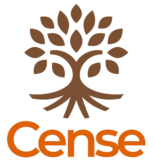
Cense Ltd. offers a distinctive approach to strategic planning that integrates strategic design, design thinking, foresight, and evaluation to create transformative solutions for complex systems. This methodology suits leaders navigating uncertainty in the health and social sectors.
Core Elements of the Approach
Strategic Design with Living Systems Focus
Cense’s service design approach is anchored in strategic design principles that recognize the dynamic nature of living systems—people, teams, organizations, and communities. This lens acknowledges that interventions must preserve and protect health, wellbeing, and planetary sustainability while adapting to evolving contexts. This is complexity-informed strategic plans that are designed for the health and social sector. With us, you won’t get something dull, off-the-shelf, and rigid — but something fit for purpose and the context of the work we do in health and human services.
Participatory and Progressive Development
The approach champions active consultation and iterative development through a series of structured engagements:
- Sprint Methodology: Using micro-consultations with targeted prompts to build frameworks iteratively
- Progressive Elaboration: Employing a “drip method” that gradually evolves initial frames into comprehensive plans allowing for emergent insights to form so the plan developed fits the context.
- Multi-stakeholder Engagement: Deliberately weaving together perspectives from leadership, frontline workers, and external partners
- Bringing Aspiration and Use Together: Create visionary plans that excite people and are feasible, practical and connect the resources available to possibilities.
This approach creates multiple touchpoints for stakeholder input while respecting participants’ time and capacity. We can help you use the planning process to engage your staff, stakeholders, board, and partners together.
Complexity-Informed Lens
Drawing from expertise in behavioural psychology, systems thinking, and strategic foresight, Cense’s methodology is explicitly designed for complexity:
- Adaptive Planning: Creating frameworks that provide clear direction while remaining responsive to disruptive forces
- Systems Orientation: Recognizing interdependencies between organizations and partners in the ecosystem
- Resilience Building: Strengthening capacity to navigate uncertainty and volatility
Evaluation Integrated Throughout
With credentialed evaluation expertise, Cense embeds evaluation principles from inception to implementation:
- Learning Systems Support: Building feedback mechanisms that enable continuous adaptation
- Measurable Success Indicators: Establishing clear metrics while honoring complexity
- Evidence Generation: Using robust data to inform decision-making and track progress
Distinctive Features
What distinguishes Cense’s approach is its blend of rigor and practicality:
- Dual Focus on Inspiration and Function: Creating plans that are simultaneously aspirational and immediately actionable
- “Telling the Story While Writing It”: Using the design process itself as an engagement and capacity-building opportunity
- Implementation Pathways: Moving beyond recommendations to provide concrete implementation guidance
- Balance of Structure and Flexibility: Providing enough structure to guide action while remaining adaptable to context changes
Applications and Impact
This methodology has proven particularly effective in contexts facing significant transformation, as seen in Cense’s work helping public health departments transition from pandemic emergency operations to strategic renewal. The approach honors the lived experience of participants while introducing innovative frameworks that expand possibilities for action.
By integrating these elements, Cense’s service design approach equips leaders with both the strategic vision and practical tools needed to navigate complexity while creating meaningful, sustainable change in their organizations and communities.

